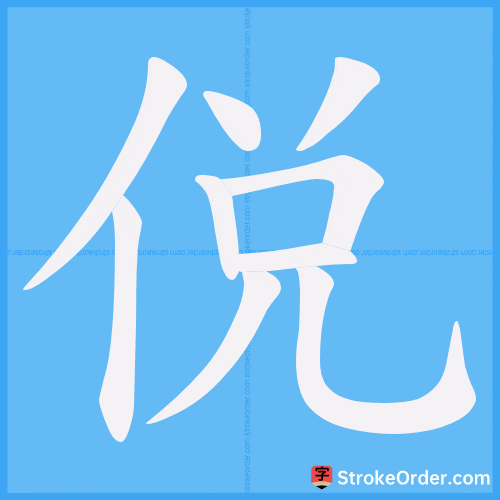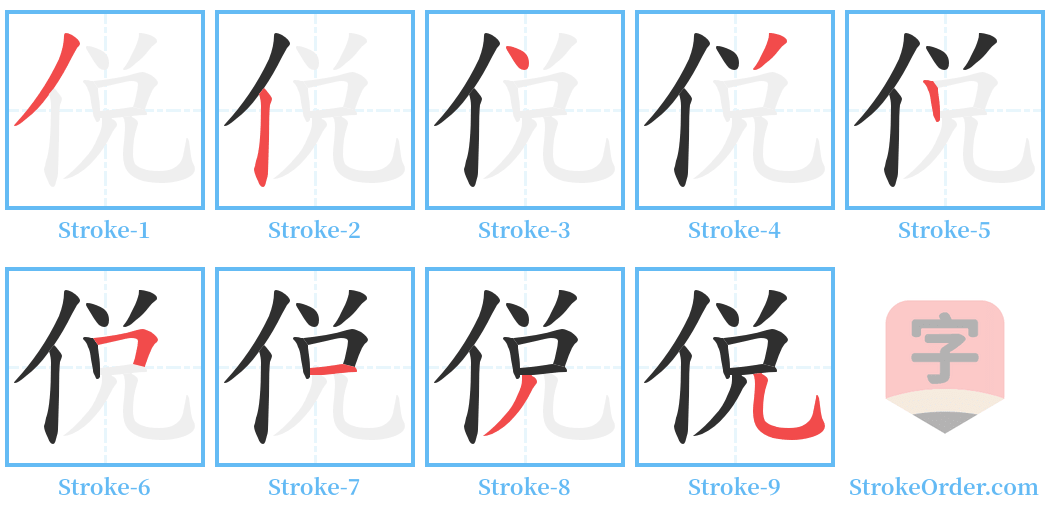侻 Stroke Order
Animated Stroke Order of 侻

Stroke Order Diagrams for 侻

Information of 侻
Pinyin
tuó、 tuì
Radical
亻
Strokes
9 strokes
Usage
★★
Definition
侻 [tuì]
1. Simple; easy.
2. Appropriate; ought to.
3. Same as "脱" (tuō); open-minded, carefree.
Adjective: Simple. In "The Spring and Autumn of Yan Zi" (Inner Chapters, Article on Advice), it states: "The clothing of a sage should be simple rather than extravagant, which can guide the masses." In "Huainanzi" (The Essentials), it states: "Their words are succinct and logical, and their actions are straightforward and follow the feelings." Commentary by Gao You from the Han Dynasty: "侻 means simple."
Adjective: Frank and unconcerned about trivial matters. In "New Book of Tang" (Volume 102, Biography of Li Bai Yao), it says: "His nature is easygoing, he enjoys drinking and having fun."
Adjective: Simple. In "The Spring and Autumn of Yan Zi" (Inner Chapters, Article on Advice), it states: "The clothing of a sage should be simple rather than extravagant, which can guide the masses." In "Huainanzi" (The Essentials), it states: "Their words are succinct and logical, and their actions are straightforward and follow the feelings." Commentary by Gao You from the Han Dynasty: "侻 means simple."
Adjective: Frank and unconcerned about trivial matters. In "New Book of Tang" (Volume 102, Biography of Li Bai Yao), it says: "His nature is easygoing, he enjoys drinking and having fun."